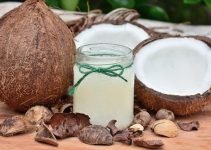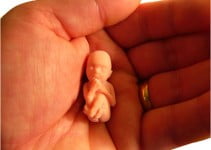 Cinnamon has a long history of use as a spice or flavoring agent. In Asian cuisines, it is widely added to various food items. In the western world, people prefer adding it to desserts or even sprinkle it over the coffee. Interestingly enough, cinnamon is also part of various traditional remedies.
Cinnamon has a long history of use as a spice or flavoring agent. In Asian cuisines, it is widely added to various food items. In the western world, people prefer adding it to desserts or even sprinkle it over the coffee. Interestingly enough, cinnamon is also part of various traditional remedies.
Cinnamon may help in some health conditions and appears to lower blood sugar levels, counter inflammation. It also seems to have an antimicrobial, antioxidant, cholesterol-lowering effect. It is regarded as good for the heart. There is some evidence that it may even alter immune responses [1].
Population-based surveys also show that more and more women are using health supplements during pregnancy. However, the use of health supplements during pregnancy is a controversial issue. Additionally, women use various spices, herbal remedies to induce labor.
Researchers have identified various organic compounds in cinnamon, explaining its numerous health benefits. Its major constituents are cinnamaldehyde, coumarin, and essential oil. In addition, cinnamon has many other phytocompounds in smaller amounts [2].
Can cinnamon induce labor?
 No, cinnamon does not appear to induce labor. Nevertheless, it may have specific effects on the course of pregnancy.
No, cinnamon does not appear to induce labor. Nevertheless, it may have specific effects on the course of pregnancy.
Some traditional texts have mentioned the use of cinnamon for managing the weakness of the uterus. However, medically such benefits are not validated. Moreover, in modern medicine, there is no firm definition of a weak uterus. Thus, despite such recommendations, it does not seem that cinnamon would affect the uterus in some way [3].
Regretfully, there are no studies in human subjects to confirm or negate the influence of cinnamon on pregnancy. There is no evidence that it can induce labor.
Since cinnamon is commonly consumed as a spice or flavoring agent by pregnant women, there is a reason to believe that it is safe. Commonly consumed cinnamon amounts do not influence uterus function.
Nevertheless, researchers have started studying it due to the frequent use of cinnamon to manage uterine weakness or help induce labor in certain parts of the world.
In one of the experiments, researchers applied cinnamon extract to the rat’s uterine strip. Interestingly enough, researchers found that it instead decreased its contractility. It means that it has a relaxing effect on the uterus strip.
This action is just the opposite of labor induction which requires stimulating contractility. Therefore, this experiment appears to suggest that cinnamon cannot induce labor in any way. However, one cannot accept the study as conclusive, as it is just an early experiment [4].
How much cinnamon is safe during pregnancy?

There are no studies regarding the safety of cinnamon in pregnancy, though it appears to be safe when consumed moderately. After all, cinnamon is frequently added to various food items as a flavoring agent. No adverse events have been reported in pregnant women consuming these foods.
However, this does not mean that there is no safety data. Researchers have identified the safe amount of cinnamaldehyde (a major compound in cinnamon). WHO recommends not to consume cinnamaldehyde more than 1.25 mg/kg a day [5].
Since cinnamaldehyde is the primary compound in cinnamon bark, thus one should consume it only in small amounts.
However, there is one issue in deciding the safer amount. Commercially available cinnamon spices, supplements, extracts rarely mention the content of cinnamaldehyde. Calculating the cinnamaldehyde content by self is not possible due to the considerable variance in cinnamon varieties.
Although 60-80% of cinnamon oil is cinnamaldehyde, its content in commercially available powders, extracts, and supplements, is relatively small.
Additionally, some data is emerging that cinnamon cassia (Chinese cinnamon), which is most commonly used as a flavoring agent, may contain high amounts of coumarin. Coumarin is a blood-thinning agent and may cause unwanted bleeding or other issues. However, such effects may only occur if someone consumes large amounts of cinnamon regularly [6].
Nevertheless, there is no need to worry when consuming cinnamon in smaller amounts. Researchers have tested cinnamon for managing gestational diabetes with some success. Such studies did not find any adverse effect of cinnamon in pregnancy [7].
Can too much cinnamon hurt baby?
 There is no study, experimental or in human subjects, that could show any health risks posed by cinnamon to fetal health. Therefore, it would be safe to say that cinnamon is safe when consumed sparingly as a flavoring agent.
There is no study, experimental or in human subjects, that could show any health risks posed by cinnamon to fetal health. Therefore, it would be safe to say that cinnamon is safe when consumed sparingly as a flavoring agent.
However, its regular use as a health supplement should be avoided due to the lack of adequate safety data. Nonetheless, its studies in gestational diabetes only say that it does not hurt baby [7].
Is cinnamon safe during pregnancy?
To conclude, yes, cinnamon is safe in pregnancy when consumed as a flavoring agent. It also appears safe when used as a health supplement, as it is suitable for gestational diabetes.
Nevertheless, one should avoid cinnamon or even other natural supplements during pregnancy. The usual wisdom is to avoid consuming supplements, medications in pregnancy until or unless needed for some special reasons.
Since cinnamon is not a potent remedy, there is no conceivable reason to consume its extract, oil, or supplements containing it in large amounts.
However, one can confidently say that using cinnamon as a spice or flavoring agent sparingly is entirely safe in pregnancy. In fact, intermittent use of cinnamon may be good and may have certain health benefits.
References
- Gruenwald J, Freder J, Armbruester N. Cinnamon and Health. Critical Reviews in Food Science and Nutrition. 2010;50(9):822-834. doi:10.1080/10408390902773052
- Zaidi SF, Aziz M, Muhammad J, Kadowaki M. Review: Diverse pharmacological properties of Cinnamomum cassia: A review. Pakistan journal of pharmaceutical sciences. 2015;28:1433-1438.
- Du Port F. Treatment of Weakness of the Uterus. In: Du Port F, Diehl H, eds. The Decade of Medicine or The Physician of the Rich and the Poor: In Which All the Signs, Causes and Remedies of Disease Are Clearly Expounded. Springer; 1988:189-190. doi:10.1007/978-3-642-73715-2_238
- Alotaibi M. The effect of cinnamon extract on isolated rat uterine strips. Reproductive Biology. 2016;16(1):27-33. doi:10.1016/j.repbio.2015.12.001
- 471. Cinnamaldehyde (WHO Food Additives Series 14). Accessed August 23, 2021. http://www.inchem.org/documents/jecfa/jecmono/v14je07.htm
- Ranasinghe P, Pigera S, Premakumara GS, Galappaththy P, Constantine GR, Katulanda P. Medicinal properties of ‘true’ cinnamon (Cinnamomum zeylanicum): a systematic review. BMC Complement Altern Med. 2013;13:275. doi:10.1186/1472-6882-13-275
- Hosni A, El-Twab SA, Abdul-Hamid M, et al. cinnamaldehyde mitigates placental vascular dysfunction of gestational diabetes and protects from the associated fetal hypoxia by modulating placental angiogenesis, metabolic activity and oxidative stress. Pharmacol Res. 2021;165:105426. doi:10.1016/j.phrs.2021.105426




 Dr. Preet Pal SB is a physician (M.D. Medicine) with a specialization in diabetes (Fellowship in diabetes, Royal Liverpool Academy). He has a particular interest in metabolic disorders, considering that they are rising in every corner of the world, more so in India.
Dr. Preet Pal SB is a physician (M.D. Medicine) with a specialization in diabetes (Fellowship in diabetes, Royal Liverpool Academy). He has a particular interest in metabolic disorders, considering that they are rising in every corner of the world, more so in India.